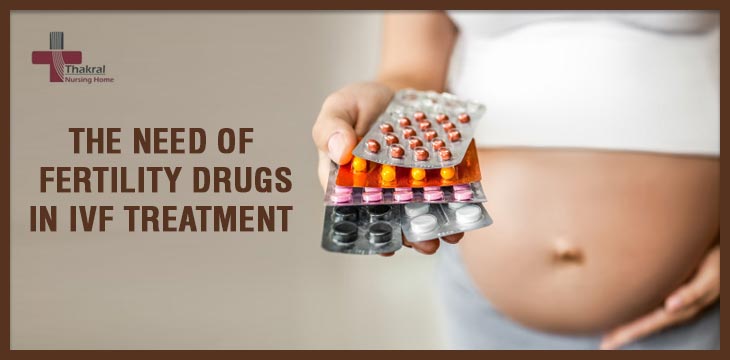
The Need of Fertility Drugs In IVF Treatment
The majority of women who attempt for infertility treatment are generally treated with fertility drugs or have to undergo surgery. Taking a drug for any cause is understood but asking about its safety is a legitimate question.
If we recall the inception of the Fertility drugs in the market, it started way back in 1967 and till then it has been fifty years since the birth of Baby Louise via test tube took place along with nine million babies have been born using in vitro fertilization (IVF) or other procedures.
Fertility Treatment To Stimulate Ovulation
Fertility drugs are prescribed for a woman who has infrequent ovulation or doesn’t ovulate at all. This is described as “ovulation induction” and the purpose is to obtain the ovulation of one or two eggs. Non-steroidal infertility medication like clomiphene and other fertility drugs like letrozole or gonadotropins are used to stimulate ovulation.
Usually, intrauterine insemination (IUI) is conducted at the time of ovulation. Even if ovulation is natural but a woman is not becoming pregnant, a fertility drug may help create more than one egg at a moment. This is termed as “ovarian stimulation” and clomiphene or letrozole may be utilized and, much less often, gonadotropins.
Fertility Drugs As An Element Of IVF Treatment
Medication is virtually forever part of the protocol for IVF, to get more eggs for fertilization to form embryos, to freeze eggs or be an egg donor. This method of ovarian stimulation points to produce many eggs at one time and nearly constantly utilizes gonadotropins.
Researches reveal that 10-15 eggs are ideal for IVF and the infertility doctor will determine the dosage to achieve this outcome. The level of evaluation which any patient will receive is dependent upon the individual history and examination.
Safety Of Fertility Drugs
Is the efficacy of Fertility drugs and their safety factor needed to be checked? History reveals the most severe complication is ovarian hyper stimulation syndrome (OHSS) which commonly happens during the cycle or soon after, and is more prevalent if pregnancy occurs. It induces expansion of the ovaries, fluid retention, and weight increase. Signs may be mild to severe and, if the latter may rarely be potentially life-threatening. OHSS is unusual but a severe complication and is believed to occur in a moderate or severe form in simply 1 to 5 percent of IVF cycles.
Standardized Dosing Regimens Of Fertility Drugs
Several fertility specialists have acquired standard dosing regimens, but every protocol is customized to fit an individual woman’s health and size. At the same time, there is nothing to stop doctors from managing larger doses. Presently, there is no precise way to track dosages or outcomes of fertility drugs.
There has already been a recommendation by different fertility organization across the globe to track drugs and dosage given during IVF be modernized to correct reporting including linking IVF treatment records to hospital registries to have better tracking of adverse reactions.
The procedure of tracking drug doses in western nations has already speeded up for some better information on this complication and soon we expect the same to be implemented in the Asian nations including India.
Reference
Fertility drugs are readily available in the market today but whenever you want to take any fertility never forget to get the Best IVF Treatment in Gurgaon from Dr. Neeru Thakral.